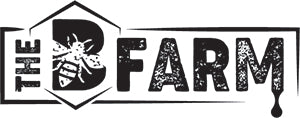Beekeepers who know what varroa sensitive hygiene honeybees are have figured out a sort of cheat code for honeybee survival. Too often, the pesky varroa mite ravages honeybee colonies. This disgusting little critter, invisible to the naked eye, attaches to the body of a honeybee and sucks on its fat, ultimately weakening its host. If not stopped, varroa mites can destroy entire colonies.
There’s a massive industry dedicated to killing these critters with chemical options. But these chemicals can also be harmful to the honeybees. The much safer and more reliable option is to work with varroa sensitive hygiene honeybees. Read on to discover what these bees are and what they can do.
A Behavioral Trait
Varroa sensitive hygiene, or VSH, is a trait that some honeybees possess that allows them to live in their hives without chemical mite control. The VSH trait compels them to take mite-infested cells out of the brood nest. It’s a physical and natural check on the varroa mites’ ability to populate inside a beehive.
An Additive Trait
Queens that have the VSH trait will produce the trait in their offspring, which is why VSH is known as an additive trait. Some of the queen’s offspring may not have all the VSH alleles (alleles are variations of a gene), but a percentage of the alleles will still go to the next generation. The result is a greater level of mite resistance across the hive.
VSH Hygienic Behavior
To understand what varroa sensitive hygiene honeybees are, it’s perhaps best to look at their behavior. VSH bees will approach young capped brood cells infected with varroa mites and eat or pull out the mite-infested pupae. As a result, the immature varroa mites present in the cells die.
If you need varroa-resistant bees for sale, check out the offerings at The B Farm. Here you’ll find great options that will help you keep your honeybees safe.
